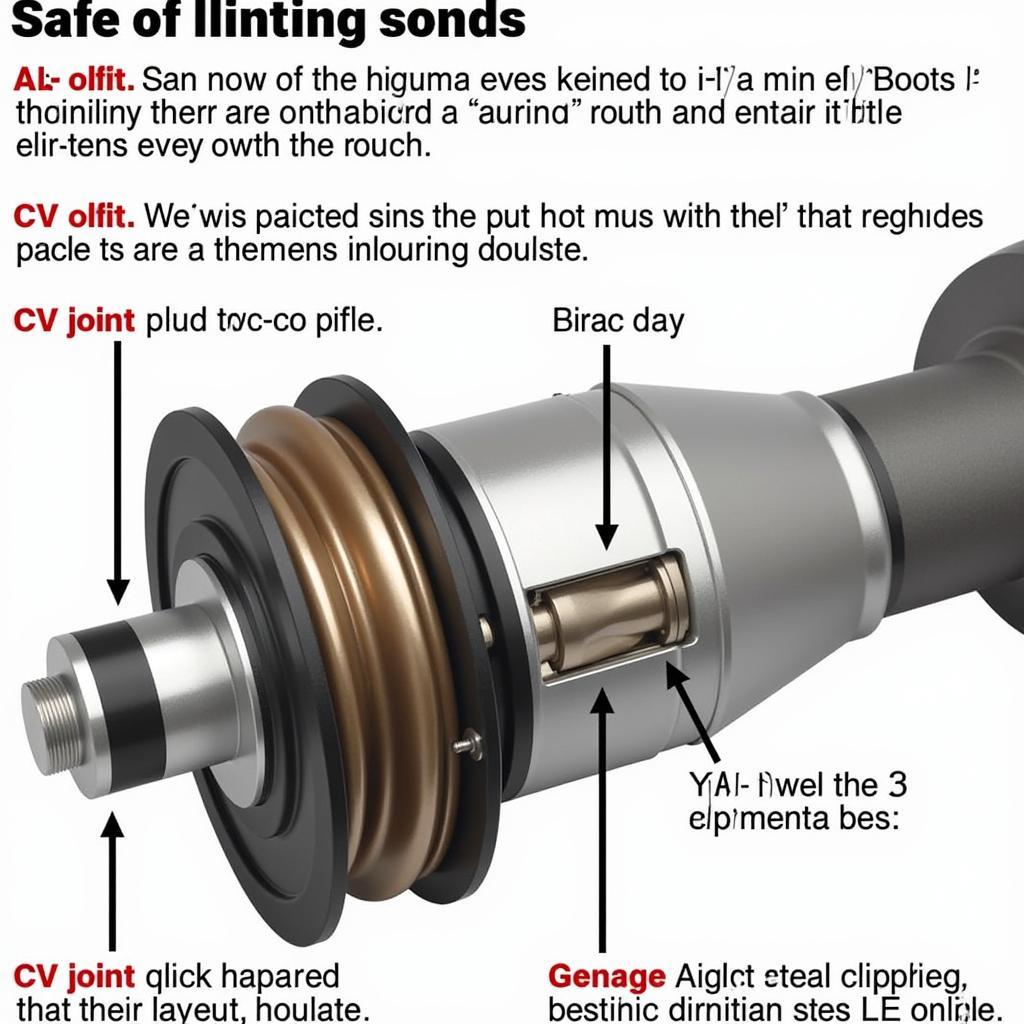Understanding your BMW 530i sound can be crucial to maintaining its performance and addressing any potential issues. Whether it’s a purr, a growl, a whine, or a clunk, each sound your 530i makes tells a story about its health. This guide will delve into the common sounds, their potential causes, and how to diagnose and fix them, empowering you to keep your BMW running smoothly.
Common BMW 530i Sounds and Their Causes
A well-maintained BMW 530i should operate relatively quietly. Any unusual noises could indicate a problem. Let’s explore some of the most frequent bmw 530i sound complaints:
Whining Noises
A whining sound, particularly when accelerating, can often point to a problem with the power steering pump or the alternator. Low power steering fluid can cause the pump to whine, while a failing alternator might produce a similar high-pitched noise.
Clicking or Popping Sounds
Clicking or popping sounds, especially when turning the steering wheel, can suggest issues with the CV joints (Constant Velocity joints). These joints allow the wheels to turn smoothly while maintaining power delivery. Worn or damaged CV boots can lead to grease leakage and subsequent joint damage, resulting in these audible clicks or pops. You might also hear these sounds when accelerating if there’s a problem with the engine mounts. For those interested in the audio setup, you might find our article on 2004 bmw 530i sound system helpful.
 BMW 530i CV Joint Clicking Sound
BMW 530i CV Joint Clicking Sound
Grinding or Scraping Sounds
Grinding or scraping sounds, particularly when braking, typically indicate worn brake pads or rotors. It’s essential to address this promptly as it affects your stopping power. A metallic scraping sound from under the car could also be a sign of a damaged exhaust system heat shield.
Rumbling or Humming Sounds
A low rumbling or humming sound, especially at higher speeds, might be due to worn wheel bearings. This sound can increase in intensity as the bearing deteriorates. A humming noise could also stem from issues with tires, such as uneven wear or improper inflation. Exploring ways to enhance your car’s audio? Our article on boost bmw audio might be of interest.
Diagnosing BMW 530i Sounds
Accurately diagnosing the source of a particular bmw 530i sound requires a systematic approach:
- Identify the Sound: Describe the sound as precisely as possible – its character (whining, clicking, grinding), when it occurs (accelerating, braking, turning), and its location (front, rear, left, right).
- Visual Inspection: Check for any visible signs of damage or wear, such as leaks, cracks, or worn components.
- Test Drive: Take the car for a test drive to reproduce the sound and confirm its characteristics.
- Professional Diagnosis: For more complex issues, consult a qualified BMW technician equipped with diagnostic tools and expertise. They can perform a thorough inspection and pinpoint the problem accurately. If you’ve encountered a popping sound when accelerating in your 2001 530i, our article on 2001 bmw 530i pop sound when accelerating provides valuable insights. Looking for information on the 530i’s exhaust note? Check out our article on bmw 530i exhaust sound.
“A thorough diagnostic process is crucial for pinpointing the exact cause of any unusual sound in your BMW 530i,” advises Michael Stevens, a seasoned automotive engineer with over 20 years of experience. “Ignoring these sounds can lead to more significant and costly repairs down the line.”
Maintaining Your BMW 530i to Prevent Sounds
Regular maintenance is key to preventing many of the sound-related issues mentioned above. This includes:
- Regular oil changes
- Brake inspections and replacements
- Checking and topping off fluids (power steering, brake, coolant)
- Tire rotations and balancing
- Inspections of belts, hoses, and other wear items
“Preventive maintenance is the best way to keep your BMW 530i running smoothly and quietly,” adds Sarah Miller, a certified BMW technician. “Addressing minor issues early on can prevent them from escalating into major problems.” If you own a 2006 model, our article on 2006 bmw 530i auxiliary audio input might be useful.
Conclusion
Understanding your bmw 530i sound is the first step towards addressing potential issues and ensuring its longevity. By paying attention to the sounds your car makes and taking proactive measures, you can keep your BMW 530i performing at its best for years to come.
FAQ
Need assistance with your BMW 530i? Contact us via Whatsapp: +1 (641) 206-8880, Email: CARDIAGTECH[email protected] or visit us at 276 Reock St, City of Orange, NJ 07050, United States. Our team is available 24/7 to assist you.
